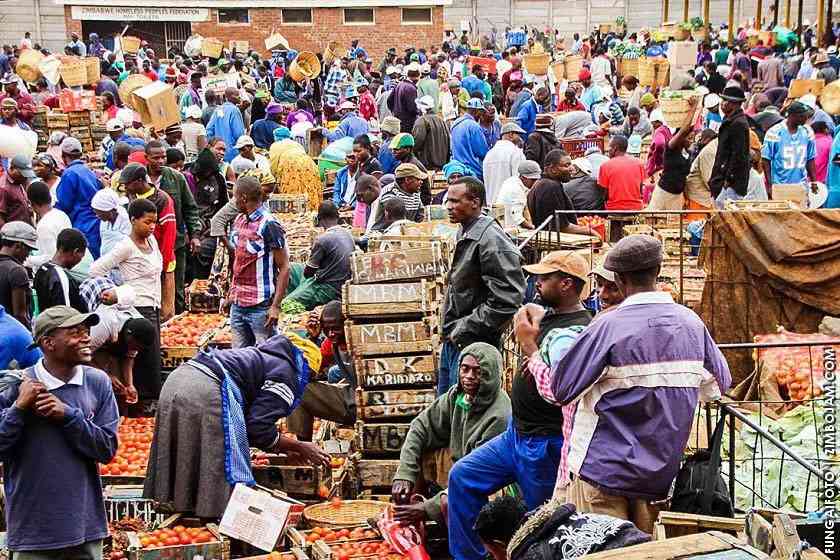
INFORMAL traders at Harare’s Mbare informal market — a bustling business hub generating millions of United States dollars weekly — disclosed they were still struggling with a cash crisis that has rattled women vendors the hardest.
A shift from the Zimbabwe dollar to Zimbabwe Gold (ZiG) on April 5 had given cash only informal markets hope the country’s prolonged liquidity crunch would be crushed.
The crisis exerted fresh pressures weeks before bond notes were abandoned, grounding markets, with edgy traders stepping aside while waiting for the new currency.
Bond notes had been used as change in commuter omnibuses, taxi services and fresh produce sales among others.
In interviews before ZiG’s roll out on April 30, Mbare’s vendors had said without change, sales were plummeting, and life was turning into a daily grind.
They had hoped the Reserve Bank of Zimbabwe (RBZ)’s move would ameliorate a gruelling crisis.
Now, the central bank has since released physical notes and coins, but despite official pronouncements of a nationwide rollout, the highly anticipated currency is in short supply, according to this week’s survey, which was supported by the World Association of News Publishers, WAN-IFRA.
The situation in the normally liquid Mbare mirrors the struggles confronting Zimbabwe’s economy.
- Rampaging inflation hits Old Mutual . . . giant slips to $9 billion loss after tax
- Monetary measures spur exchange rate stability: RBZ
- Zim deploys IMF windfall to horticulture
- Banker demands $21m from land developer
Keep Reading
"We haven't seen a single ZiG note yet," lamented a vegetable vendor, who identified herself as Mai Tino.
Following a crackdown against currency transgressions recently, the traders were careful to give their full names.
With the currency scarce, sales have been in tailspin again, they said.
Schools opened for the second term two weeks ago and traders said they struggled to raise school fees.
"Business is at a standstill,” said another vendor, who identified herself as Charity.
The biggest number of vegetable vendors are women. Daily, they wake up early to catch commuter omnibuses that do not have small denominations of the ZiG.
Charity said the greatest threat to their businesses was the unavailability of small denominations of the local currency, which they need to give change.
“Without US$0,50 change the issue persists, creating unnecessary friction with customers. How can we operate?" Charity asked.
The situation is the same in many of Harare’s suburbs, where women, like Charity had found respite in fresh produce trade after they and their husbands lost jobs due to de-industrialisation.
“Having a tuck-shop in a community where you stay is a disadvantage on its own. I accept different exchange rates. Some customers say US$0,50 is ZiG6. But when I go to Mbare to buy my stock they either do not accept ZiG or use the US$1: ZiG20 exchange rate. So I would have suffered a loss.”
Commuter omnibus and taxi operators also said physical notes were scarce.
Where they were available, there has been confusion on the exchange rate.
“ZiG is very hard to get,” a taxi operator said.
“We get it once a week. A lot of people don’t have ZiG. I think ever since they were released, I have only had the privilege to hold ZiG20, which is equivalent to a dollar only.
“In our taxi operations, there are distances that are charged US$0,50. So there is confusion on how to rate ZiG. Now ZiG10 is what is being regarded as half a dollar.
“From how we see it, people are saying ZiG10 is equivalent to US$0,70. But because the cents and smaller denominations are scarce, we end up making 10ZiG our US$0,50 cents,” the taxi operator said.
Informal traders called on the government to release more notes.
However, when ZiG was introduced, the RBZ said enough cash would be circulating to facilitate transactions.











